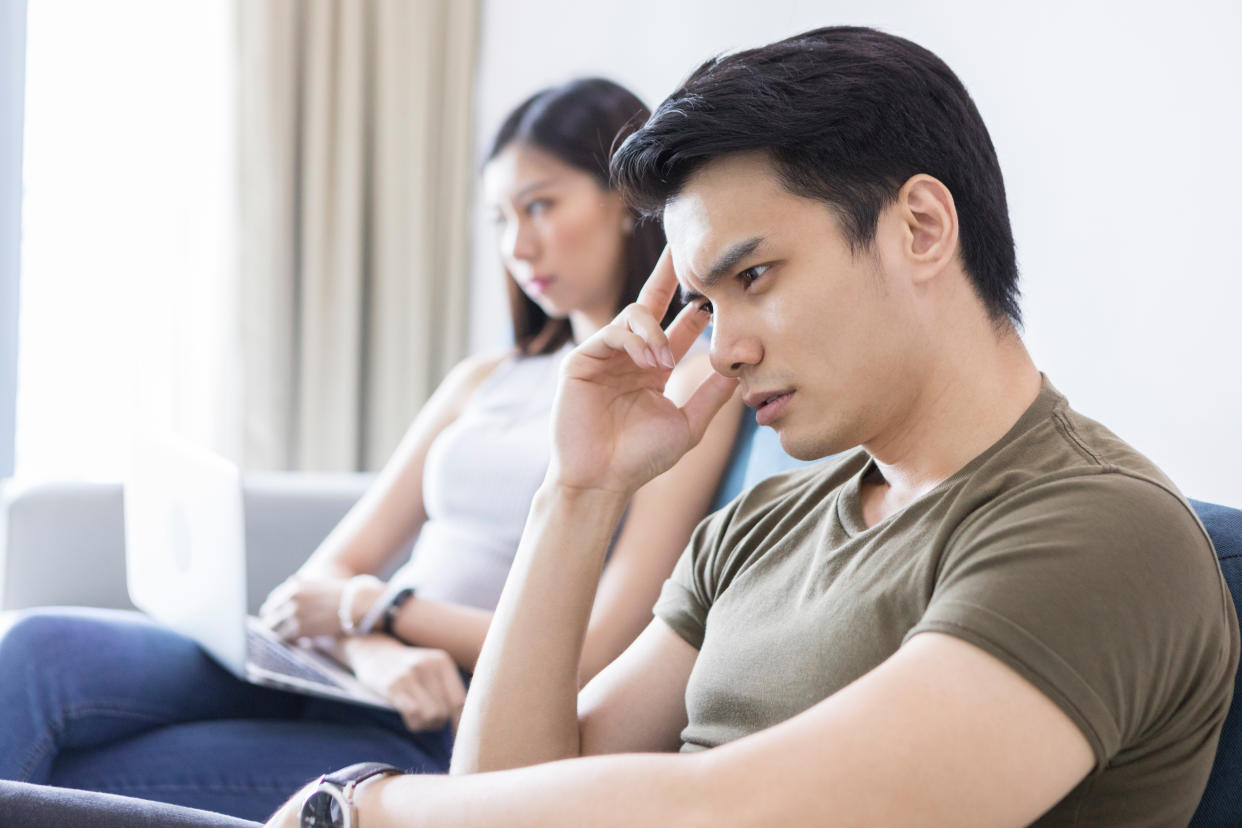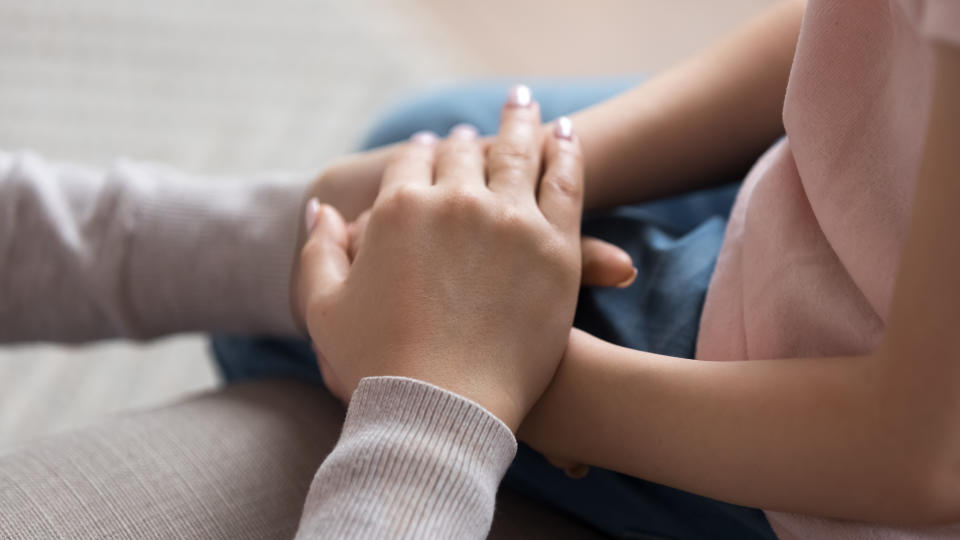How to cope with anxiety from COVID-19

COVID-19 cannot be ignored any more, and the realisation that it could actually affect us, our loved ones and people we know, is sure to increase your anxiety and stress.
But don’t panic! There are some easy things to do that will help you to manage your distress, and let you ‘Keep Calm, and Carry On’.
READ MORE:
Is it safe to go swimming during coronavirus pandemic?
One thing parents need to keep in mind during the coronavirus pandemic: Taking care of ourselves
Can the coronavirus survive on surfaces?
Working from home: Here are some of the best practices to know
Separate existing anxiety from COVID-19 anxiety
Many of us already suffer from generalised anxiety these days, and for those who do, the addition of a health scare will increase their existing problem. If you are someone who already has an anxiety diagnosis, make sure you reach out to your medical professional for some extra support or directions on what to do, and whether or not your medication needs to be monitored.
If you are generally mentally well, but have had sudden feelings of anxiety or panic, here are some helpful tips from Judson A. Brewer, an associate professor at Brown University who specialises in thought behaviours around how our minds get hooked on things, and how to change bad mental habits.
How to break the COVID-19 anxiety cycle
Panic occurs when we don’t control our anxiety levels, and is defined as “sudden uncontrollable fear or anxiety, often causing wildly unthinking behaviour.” This is what has happened to all the people panic buying toilet paper and rice.
When we are overwhelmed with an event or experience that is outside the usual, things like uncertainty and fear of the future will cause us to become less rational according to Brewer.
“Logically, we know that we don’t need a six-month supply of toilet paper, but when we see someone’s cart piled high, their anxiety infects us, and we go into survival mode,” says Brewer.
So how do we stop panicking? We can’t just force ourselves to suppress it, because our brains don’t work that way.
“Unfortunately, both willpower and reasoning rely on the prefrontal cortex, which isn’t available at these critical moments. Instead, I start by teaching them how their brains work, so that they can see how uncertainty weakens the brain’s ability to deal with stress, priming it for anxiety when fear hits,” explains Brewer.
This is the first step. The next are to be aware that we are anxious, and also to think about what happens when we become anxious. We need to realise that being too anxious and panicking won’t actually help us in the current situation.
Once we can see that, then we need to start replacing these habits with better ones, to create more positive outcomes for ourselves.
Brewer wrote about this in his recent article for the New York Times:
“If we notice that we have a habit of touching our face, we can be on the lookout for when we act that behaviour out. For example:
If we are starting to worry: “Oh no, I touched my face, maybe I’ll get sick!”
Instead of panicking, take a deep breath and ask: “When was the last time I cleaned my hands?”
Think. “Oh, right! I just washed my hands.”
Just by taking a moment to pause and ask the question, we give our prefrontal cortex a chance to come back online and do what it does best: think.”

Be proactive about prevention
If you follow the government guidelines about personal hygiene, stay away from people who may be ill, practice ‘social distancing’ and other preventative actions, then you can reassure your anxious self that you have some control of the situation.
Don’t panic buy. The more people panic buy, the less there is available for everyone, particularly the elderly and other at-risk people. Be kind. Don’t buy more than you need. Even in the worst of the Wuhan outbreak, the government didn’t shut all stores.
If you do start to feel anxious, take the time to remember all the things you have done that will ensure you remain healthy. Dismiss your concerns with practical actions by doing additional cleaning, or making a call to a friend.
By knowing why you are anxious, acknowledging it and reminding yourself that you have taken some control of the situation, you will be able to ‘Keep Calm and Carry On’.
Practical tips for dealing with COVID-19 anxiety
The World Health Organisation (WHO) has released a series of helpful tips on how to deal with anxiety rising from the COVID-19 pandemic:
Accept that it’s normal to feel sad, stressed, confused, scared or angry during an outbreak
Find ways to talk about how you feel with others, especially if you are in quarantine
Remember to keep an eye out for loved ones who already have a mental health issue. They may need extra help dealing with this added anxiety
If you feel overwhelmed, seek support from a health professional
Don’t use smoking, alcohol or other drugs to deal with your emotions
Keep your body as healthy as possible by eating well, exercising and getting enough sleep
Limit media exposure to a few trusted sources
For information about the COVID-19 outbreak in Singapore go to https://www.gov.sg/features/covid-19.
If you are struggling with thoughts or feelings about suicide, contact SOS on 1800 221 4444 (24hrs). If you have concerns about mental health issues, contact Emergency Helpline (IMH) on 6389 2222 (24hrs). For more information and help dealing with mental health issues, go to www.healthhub.sg/findhelp_servicesformentalhealthsupport.
For information about the COVID-19 outbreak in Malaysia
If you are struggling with thoughts or feelings about suicide, contact Lifeline on (+603) 4265 7995 (24hrs). If you have concerns about mental health issues, contact the Malaysian Mental Health Association on (+603) 7782 5499. For more information and help dealing with mental health issues, contact the Befrienders on (+603) 79568144 or (+603) 7956 8145; or go to www.befrienders.org.my.
For information about the COVID-19 outbreak in Philippines
If you are struggling with thoughts or feelings about suicide, contact Lifeline on (02) 8969191 or 0917 854 9191. If you have concerns about mental health issues, contact the National Center for Mental Health (NCMH) Crisis Hotline on 0917 899 8727 (USAP) and 989 8727 (USAP). For more information and help dealing with mental health issues, go to the National Center for Mental Health at ncmh.gov.ph.


